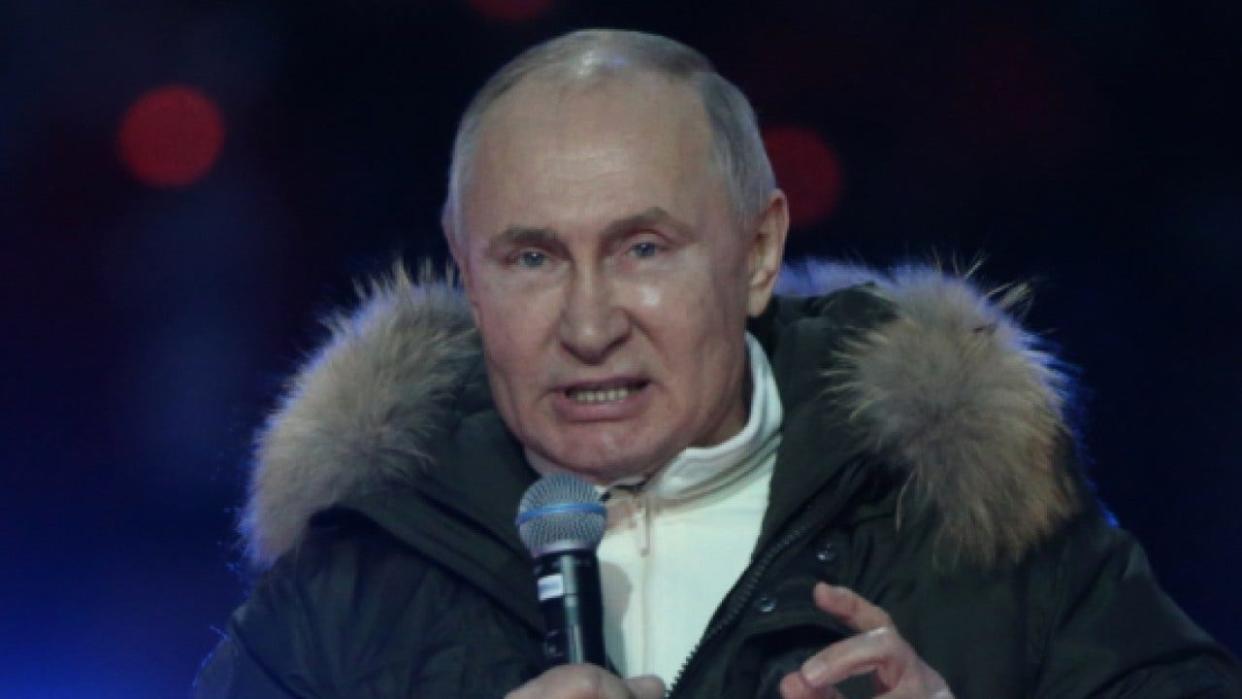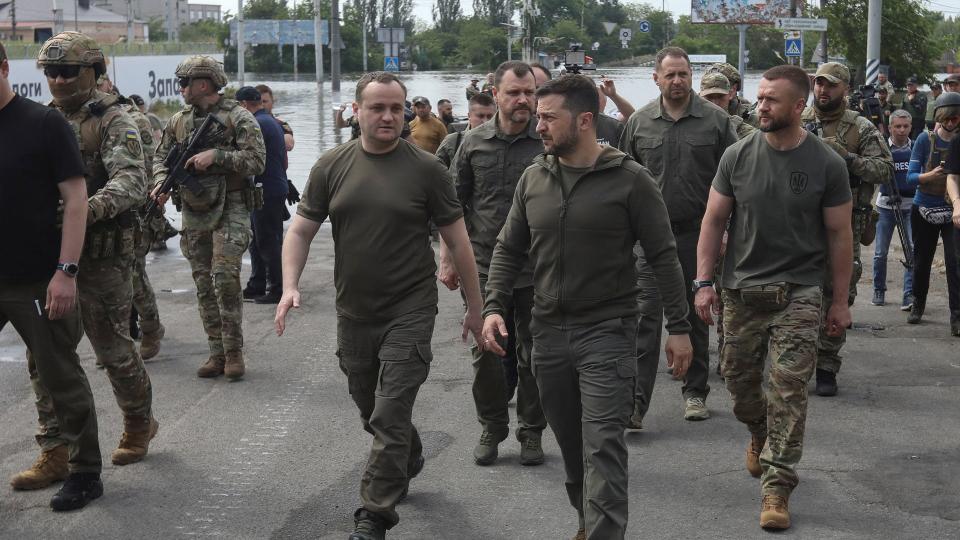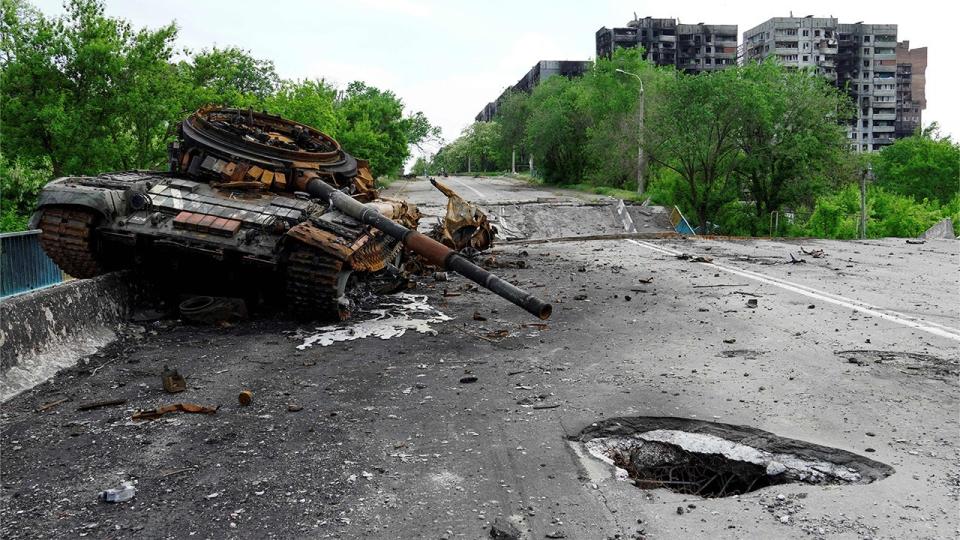Zelenskyy warns of Russia’s attempts to cause turbulence in the Balkans
November 20, 2023 | by b1og.net


Zelenskyy warns of Russia’s attempts to cause turbulence in the Balkans
In an alarming revelation, President Zelenskyy cautions against Russia’s relentless efforts to create havoc in the Balkans. With the Balkans already grappling with simmering geopolitical tensions, Zelenskyy’s warning raises concerns about the destabilizing actions of Russia. As tensions escalate in the region, diplomatic endeavors become imperative to avert any potential explosion.
▶ [Kucoin] Transaction fee 0% discount CODE◀
Geopolitical Tensions in the Balkans
Overview of the Balkans region
Situated in Southeast Europe, the Balkans have long been a region characterized by complex geopolitical dynamics. Comprising countries such as Albania, Bosnia and Herzegovina, Bulgaria, Croatia, Greece, Kosovo, Montenegro, North Macedonia, Romania, Serbia, and Slovenia, the Balkans have historically experienced various conflicts and power struggles. This diverse region is known for its rich cultural heritage, but also for its deep-seated tensions rooted in ethnic, religious, and historical differences.
Historical background
To understand the current geopolitical climate in the Balkans, it is crucial to delve into the historical context that has shaped the region. The breakup of the Ottoman Empire in the late 19th and early 20th centuries, coupled with the emergence of nationalistic movements, played a pivotal role in sparking numerous conflicts. The Balkan Wars, World War I, and the dissolution of Yugoslavia in the 1990s are just a few examples of tumultuous events that have left lasting scars.
Current geopolitical climate
The Balkans continue to grapple with geopolitical tensions that have the potential to ignite new conflicts and exacerbate existing divisions. One of the main sources of concern in the region is Russia’s assertive behavior and destabilizing actions. Ukrainian President Volodymyr Zelenskyy recently issued a warning about Russia’s attempts to cause an “explosion” in the Balkans, a call that should not be taken lightly.
Zelenskyy’s Warning
Zelenskyy’s concerns
President Zelenskyy’s warning carries significant weight, drawing attention to the growing influence of Russia in the Balkans. According to Zelenskyy, Russia is actively seeking to exploit existing fault lines and tensions in the region to further its own interests. This includes backing separatist movements, engaging in cyberattacks and disinformation campaigns, and exerting political and economic pressure. Zelenskyy’s concerns highlight the urgent need for preventive measures to safeguard the stability and security of the Balkans.
Russia’s destabilizing actions
Russia’s actions in the Balkans, fueled by a desire to expand its sphere of influence, have posed a serious threat to regional stability. Through its support for separatist movements, Russia has aimed to undermine the sovereignty and territorial integrity of Balkan nations. This tactic has been seen in Crimea and eastern Ukraine, where Russia’s interventions have resulted in prolonged conflicts and heightened tensions. By replicating these actions in the Balkans, Russia aims to assert its dominance and weaken the influence of Western powers.
The potential for an “explosion” in the Balkans
Zelenskyy’s use of the term “explosion” conveys the severity of the situation in the Balkans. With deep-rooted ethnic, religious, and historical divisions, the region is particularly susceptible to external interference. The Balkans have witnessed devastating conflicts in the past, and the potential for further escalation cannot be underestimated. A power vacuum created by internal divisions, coupled with external manipulation, creates a dangerous environment that must be addressed collectively and swiftly.
▶ [Kucoin] Transaction fee 0% discount CODE◀
Russia’s Attempts to Cause Turbulence
Motivations behind Russia’s actions
Russia’s motives for causing turbulence in the Balkans are multi-faceted. Firstly, it seeks to maintain a strategic foothold in the region, enabling it to project power and influence beyond its borders. Secondly, Russia aims to counter the influence of NATO and the European Union (EU), which it perceives as threats to its hegemony. By sowing discord and instability, Russia undermines the credibility and effectiveness of these Western institutions. Additionally, Russia’s actions allow it to exploit the region’s resources and economic potential to its advantage.
Methods used to create turmoil
Russia employs various methods to create turmoil in the Balkans, employing a combination of covert and overt tactics. It engages in cyberattacks and disinformation campaigns, using information warfare to manipulate public opinion and sow discord among different ethnic and religious groups. Additionally, Russia supports separatist movements, arming and training insurgents to challenge the authority of central governments. These actions aim to destabilize the region, weaken state institutions, and foster a climate of fear and uncertainty.
Targets of Russian interference
Russia’s interference in the Balkans is not limited to a single country or group. Instead, it takes aim at vulnerable states and regions where existing tensions provide fertile ground for exploitation. Countries like Bosnia and Herzegovina, Kosovo, and Serbia are particularly susceptible due to their fragile political systems and unresolved conflicts. By exploiting these vulnerabilities, Russia seeks to assert itself as a major player and hinder the Euro-Atlantic integration of the Balkans.
Evidence of Russian Involvement
Cyberattacks and disinformation campaigns
Russia has honed its cyber capabilities, deploying sophisticated techniques to carry out cyberattacks in the Balkans. These attacks target critical infrastructure, government institutions, and communication networks, causing disruption and chaos. Furthermore, Russia engages in widespread disinformation campaigns, using social media platforms to spread false narratives and manipulate public opinion. This information warfare serves to advance Russia’s interests and undermine trust in democratic processes.
Arms smuggling and support for separatist movements
Another piece of evidence highlighting Russia’s involvement in the Balkans is its support for separatist movements and the smuggling of weapons. Through clandestine channels, Russia provides financial and military assistance to these groups, enabling them to challenge the authority of central governments and destabilize the region. This support has led to the emergence of pro-Russian militias and armed conflicts in various parts of the Balkans, creating an atmosphere of insecurity and mistrust.
Political influence and economic leverage
Russia’s presence in the Balkans extends beyond military and cyber activities. It also exerts political influence and economic leverage to further its interests. Through covert channels, Russia supports political parties and figures sympathetic to its agenda, working to shape domestic policies and undermine democratic processes. Additionally, Russia utilizes its economic influence to gain control over key sectors and resources, thereby solidifying its grip on the region economically and politically.
Regional Implications
Impact on Balkan countries
The geopolitical tensions and Russian interference in the Balkans have far-reaching implications for the countries in the region. Unresolved conflicts and the presence of separatist movements hinder the prospects of stability and development. Citizens endure the consequences of prolonged insecurity, economic stagnation, and political polarization. Furthermore, the interference perpetuates divisions among different ethnic and religious groups, heightening the risk of further violence and escalation.
Threats to stability and security
The destabilizing actions of Russia pose significant threats to the stability and security of the Balkans, as well as the wider European region. Heightened tensions and unresolved conflicts increase the potential for violence and contribute to a volatile environment. Additionally, the influence of Russia undermines the credibility of regional institutions and impedes efforts towards Euro-Atlantic integration. As a result, the path to peace, prosperity, and closer cooperation within the Balkans and with the EU becomes increasingly uncertain.
European Union’s role in addressing the issue
The European Union, as a key stakeholder in the Balkans, plays a crucial role in addressing the geopolitical tensions in the region. By actively engaging with and supporting Balkan countries, the EU can contribute to stability, reconciliation, and the resolution of disputes. Through initiatives such as the Western Balkans Strategy and the enlargement process, the EU can promote democratic reforms, strengthen the rule of law, and alleviate socio-economic disparities. By fostering cooperation and integration, the EU can help build resilience against external interference and create a path towards a peaceful and prosperous future.
Diplomatic Efforts and Countermeasures
Importance of international cooperation
Addressing the geopolitical tensions in the Balkans requires a concerted effort from the international community. Through collaborative diplomacy and multilateral cooperation, countries can pool resources, intelligence, and expertise to effectively counter Russian interference. By standing together, the international community can send a strong message that attempts to undermine regional stability will not be tolerated. This collective approach also bolsters the legitimacy and effectiveness of countermeasures, ensuring a more comprehensive response.
Role of NATO and other alliances
NATO and other alliances have a crucial role to play in mitigating the threats posed by Russia’s actions in the Balkans. As an organization committed to collective defense, NATO can provide security guarantees and deter potential aggressors. Through increased presence and military exercises, NATO can bolster the defense capabilities of Balkan countries, reinforcing their sovereignty and deterring further interference. Additionally, cooperation with other regional and international organizations, such as the United Nations and the Organization for Security and Cooperation in Europe (OSCE), can strengthen diplomatic efforts and foster dialogue.
Sanctions and diplomatic pressure on Russia
To effectively address Russia’s destabilizing actions, it is necessary to impose sanctions and exert diplomatic pressure. By targeting individuals and entities involved in illicit activities, sanctions can restrict their access to financial resources and hinder their ability to carry out destructive actions. Furthermore, diplomatic pressure, including the use of diplomatic channels, dialogue, and public condemnation, can isolate Russia and delegitimize its actions. By imposing consequences for its behavior, the international community can send a clear message that aggressive actions in the Balkans will not be tolerated.
Addressing Root Causes
Ethnic and religious tensions in the region
One of the root causes fueling geopolitical tensions in the Balkans is the deep-seated ethnic and religious divisions. Historically, these divisions have been exploited by external forces seeking to exert influence and sow discord. Addressing these tensions requires a multi-faceted approach, including promoting inter-ethnic dialogue, fostering understanding and tolerance, and ensuring equal rights and opportunities for all. By tackling these underlying issues, the Balkans can move towards a more inclusive and harmonious society.
Economic disparities and inequality
Economic disparities and inequality also contribute to the geopolitical tensions in the Balkans. Socio-economic grievances and lack of opportunities create fertile ground for frustration and resentment, which can be exploited by external actors seeking to manipulate the situation. To address these challenges, there is a need for sustainable economic development, investment in infrastructure, and job creation. Ensuring a fair distribution of wealth and opportunities will help alleviate socio-economic disparities and reduce the likelihood of conflict.
Need for dialogue and reconciliation
Fundamentally, addressing the root causes of the geopolitical tensions in the Balkans requires sustained dialogue and reconciliation efforts. This involves fostering open and constructive discussions among different stakeholders, promoting understanding of each other’s perspectives, and working towards mutually acceptable solutions. By creating spaces for dialogue and facilitating reconciliation processes, the Balkans can lay the groundwork for long-lasting peace and stability.
Lessons from Ukraine’s Experience
Similarities between Ukraine and the Balkans
Ukraine’s experience with Russian aggression holds valuable lessons for the Balkan countries. Both regions have faced challenges related to Russia’s assertive behavior, including separatist movements and disinformation campaigns. The similarities lie in the vulnerabilities of these regions, where unresolved conflicts and deep divisions are easily exploited. Recognizing these parallels allows for a better understanding of the complexities and potential risks faced by the Balkans.
Ukraine’s response to Russian aggression
Despite the challenges it has faced, Ukraine has demonstrated resilience and determination in the face of Russian aggression. Ukraine has pursued diplomatic efforts, sought international support, and implemented measures to strengthen its defense capabilities. It has also worked towards reforming its institutions, addressing corruption, and promoting national unity. These efforts, though ongoing, have allowed Ukraine to maintain its sovereignty and resist further Russian encroachment.
Lessons for the Balkan countries
The Balkan countries can draw important lessons from Ukraine’s experience. Firstly, it is vital to prioritize democratic reforms, strengthen institutions, and address corruption. By fostering transparency and accountability, the Balkans can build strong foundations for stability and democratic governance. Secondly, close cooperation with international partners and alliances, particularly NATO and the EU, can provide valuable support and deter potential aggression. Lastly, a united and resilient society that rejects division and embraces dialogue is essential for countering Russian interference and ensuring long-term stability.
Future Outlook
Potential scenarios for the Balkans
The future outlook for the Balkans is uncertain and depends on a variety of factors, including the actions of external actors and the commitment of regional countries to pursue stability and cooperation. However, several potential scenarios can be envisioned. In a positive outcome, regional countries could successfully address their internal divisions, forge closer ties with the EU, and achieve lasting stability through dialogue and reconciliation. Conversely, if geopolitical tensions persist and Russia continues its interference, the Balkans may experience further fragmentation and conflicts.
Mitigating risks and ensuring regional stability
To mitigate the risks and ensure regional stability in the Balkans, concerted efforts are required. This includes fostering dialogue, promoting cross-border cooperation, and addressing the root causes of tensions. Strengthening regional institutions and frameworks, such as the EU’s enlargement process and NATO’s presence, can provide a platform for collaboration and stability. Additionally, enhancing resilience against cyberattacks and disinformation campaigns is imperative in an increasingly digitalized world.
Importance of vigilance and preparedness
In the face of ongoing geopolitical tensions, vigilance and preparedness are of paramount importance. Regional countries, supported by international partners, must remain vigilant to external attempts to exploit divisions and increase instability. Building strong defense capabilities, enhancing intelligence gathering capabilities, and investing in cyber defense are crucial aspects of preparedness. By recognizing the potential risks and maintaining a proactive stance, the Balkans can better respond to emerging challenges and safeguard their security and stability.
Conclusion
Geopolitical tensions in the Balkans pose significant threats to regional stability and require urgent attention from the international community. Russian interference, in particular, has the potential to exacerbate existing divisions and create further instability. Prompt diplomatic efforts and countermeasures are necessary to prevent escalation and protect the sovereignty and territorial integrity of Balkan countries. By addressing the root causes of tensions, fostering dialogue and reconciliation, and strengthening regional institutions, the Balkans can move towards a future of peace, cooperation, and prosperity. The international community must prioritize this issue, as failure to do so could have long-term implications not only for the Balkans but for regional and global security as a whole.
RELATED POSTS
View all







